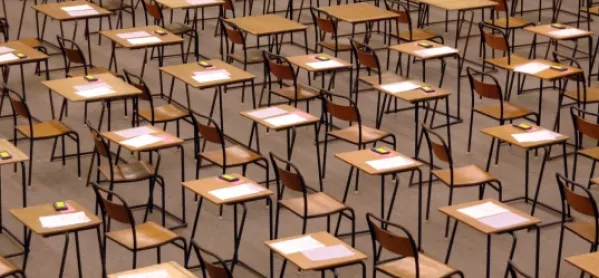- Home
- ‘Do we still need key stage 3 exams?’
‘Do we still need key stage 3 exams?’

Approaching the last weeks of GCSE and A-level exams, many of us will be breathing a sigh of relief. Finally, we can put the last-minute exam practice behind us and concentrate on getting on with teaching our subjects.
But, wait. There is still the small matter of key stage 3 end-of-year exams – something that we could really do without.
A typical Year 7, 8 or 9 class at my school has an hour of physics per week. With one revision lesson, one lesson lost for the exam and one lesson used for reviewing the exam, end-of-year exams will take up three of your precious lessons for the year. If you happen to get lucky and have all 39 lessons of the academic year, you have lost only 8 per cent of your lessons. But if, like me, you have just 30 of those lessons, you have lost 10 per cent of your teaching time.
Then comes the time after exams. Students have spent weeks building themselves up to a crescendo of examination sensation, and now it is the glorious countdown to summer. Students are generally less engaged to the point that you are not in a position to teach important new content and expect it to stick. Cue the relatively meaningless project work.
End-of-year exams cruch the joy of learning
End-of-year exams could be useful for students in Year 9, especially if students are intending to take a subject further into GCSE, as it can provide a useful marker and an indication of where each student sits in their cohort. However, end-of-year exams for Year 7 and 8 are entirely unnecessary. Assessments throughout the year could capture their learning well enough. Students should bounce around in Year 7 and 8, learn some wonderful things, and come to recognise that school is a place of joy and wonder. End-of-year exams help to crush a great deal of that joy.
The same goes for Year 10. There is little point in a series of exams almost identical to the mock exams that they will have to face only months later. If we were to scrap the end-of-year exams, it would give us a full year of uninterrupted learning. This applies to Year 12, too, especially as we try to move from modular to linear: too many end-of-year exams have become as disruptive as AS-level exams, but worth even less.
Developing a balanced curriculum
Of course, there are some important benefits of end-of-year exams, but these could, I believe, be replicated elsewhere.
Exams can suggest how well a student has learned the content from the year, particularly where prior to this they may have been completing assessments in smaller blocks. If that is the case, you should consider developing your curriculum to allow students the opportunity to be examined on a range of topics within each test.
Students work harder towards higher-stakes assessments, so the end-of-year exams give a truer indication of student achievement. However, mock exam periods will ensure there is some high-stakes experience before the real thing.
End-of-year exams also provide a chance to work seriously on study habits, although if poorly executed this can give the impression that studying intensely close to the exams is the most appropriate method, and we know that studying sensibly throughout the year is more effective. We should instead be working year-long through our tutor and PSHE programmes and with parents to encourage the best study approaches.
Ultimately, high-quality testing throughout the year, combined with a well-designed study skills programme, will provide students with all the benefits of end-of-year exams, without the loss of lesson time.
Like so many things in education, when it comes to key stage 3 exams, we need to ask the question: “Does this add value?”
Do we really get enough value from end-of-year exams to justify us continuing with them?
Drew Thomson is a head of science and a physics teacher
Keep reading for just £1 per month
You've reached your limit of free articles this month. Subscribe for £1 per month for three months and get:
- Unlimited access to all Tes magazine content
- Exclusive subscriber-only stories
- Award-winning email newsletters
